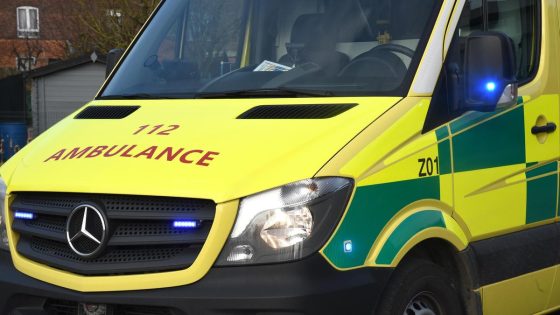On February 2, 2025, a serious incident occurred in Tongeren when emergency responders faced aggression during a medical intervention. A man reportedly became violent, attacking both an ambulance worker and a nurse, leading to their injuries and subsequent inability to work for several days. What drives such hostility towards those who help US?
- Ambulance crew attacked during medical intervention
- Second incident of aggression in one week
- Police arrested the aggressive suspect
- Aggression against responders increasingly reported
- Authorities emphasize strict consequences for violence
- Call for respect towards emergency services
Growing Violence Against Emergency Responders: A Serious Concern
This incident is not isolated; it reflects a troubling pattern of increasing violence against emergency personnel. Why are our heroes facing such hostility? Recent statistics show that aggression towards healthcare workers is rising sharply across Belgium.
The Impact of Aggression on Healthcare Services in Belgium
The recent attacks have sparked outrage within the community and among officials. Emergency services are crucial for public safety, yet they face escalating threats that hinder their ability to perform effectively.
- Aggression against healthcare workers has increased due to factors like substance abuse.
- Both physical and verbal assaults contribute to staff shortages and burnout.
- Community awareness campaigns aim to foster respect for these essential workers.
- The legal system is responding with stricter penalties for offenders.
The Role of Community Support in Protecting Emergency Workers
Communities play a vital role in ensuring the safety of emergency responders. Engaging local residents can help create an environment where respect prevails over aggression. How can communities better support these essential services?
Legal Measures Against Violence Towards Healthcare Workers
The Belgian government has recognized the urgency of this issue. New laws are being proposed to impose harsher penalties on individuals who attack healthcare professionals while they are on duty. This could serve as a deterrent against future incidents.
Coping Strategies for Emergency Responders Facing Aggression
Emergency responders often deal with high-stress situations that can lead to conflict. Training programs focusing on de-escalation techniques and mental health support are essential tools that can help them manage aggressive encounters more effectively.
This ongoing situation underscores the need for collective action from both authorities and communities alike to ensure the safety of those who risk their lives daily for others’ well-being.
































